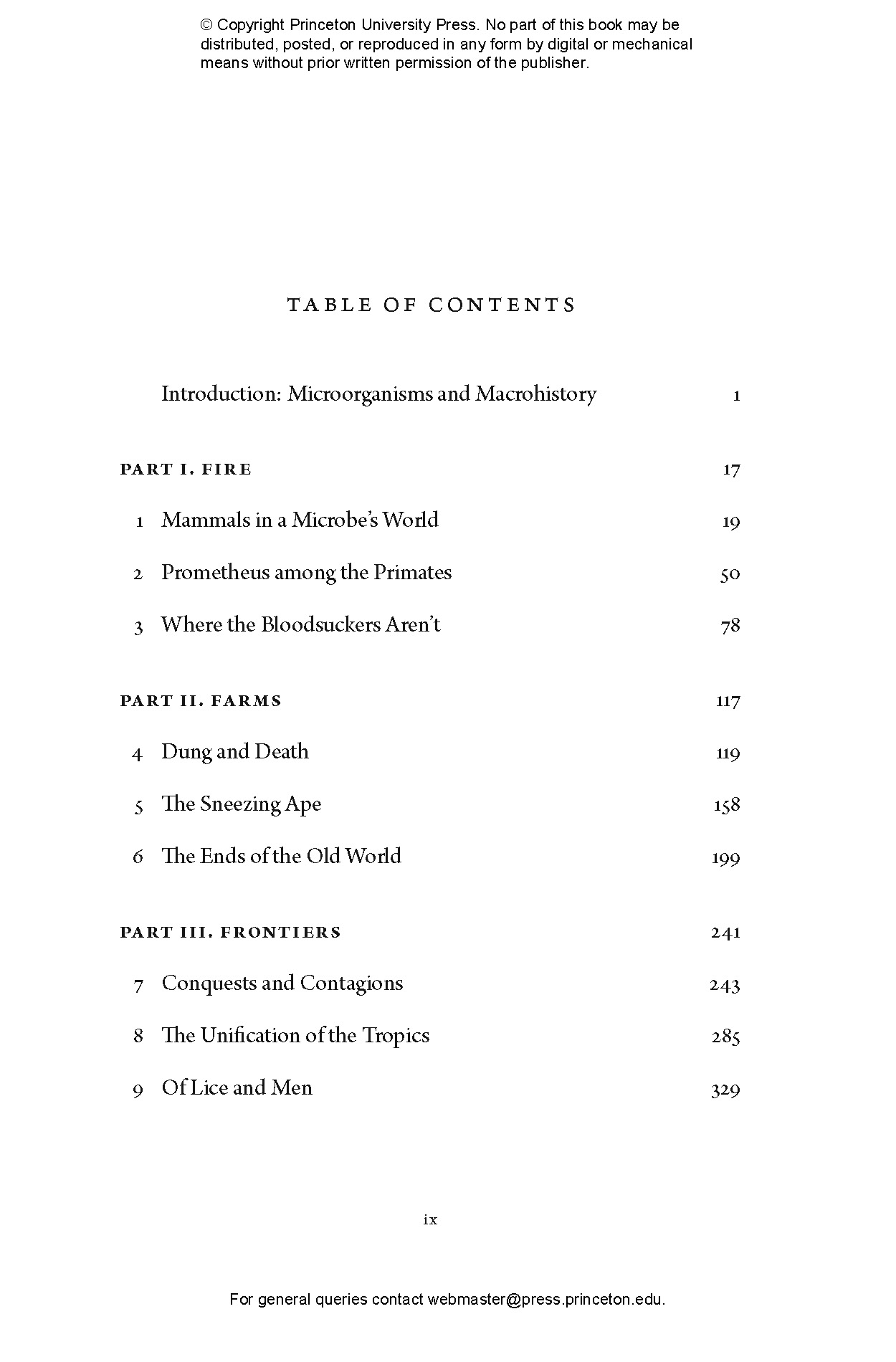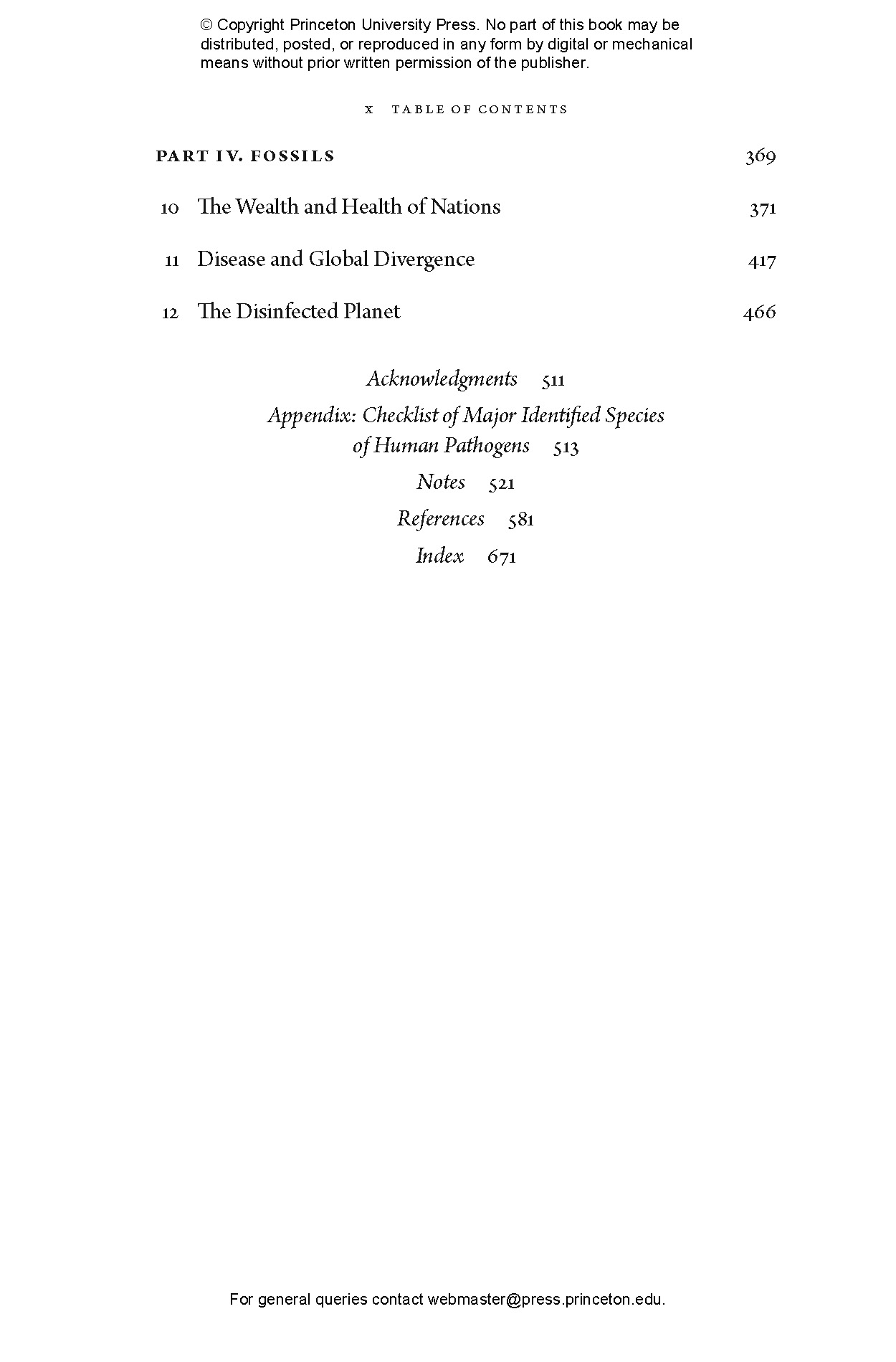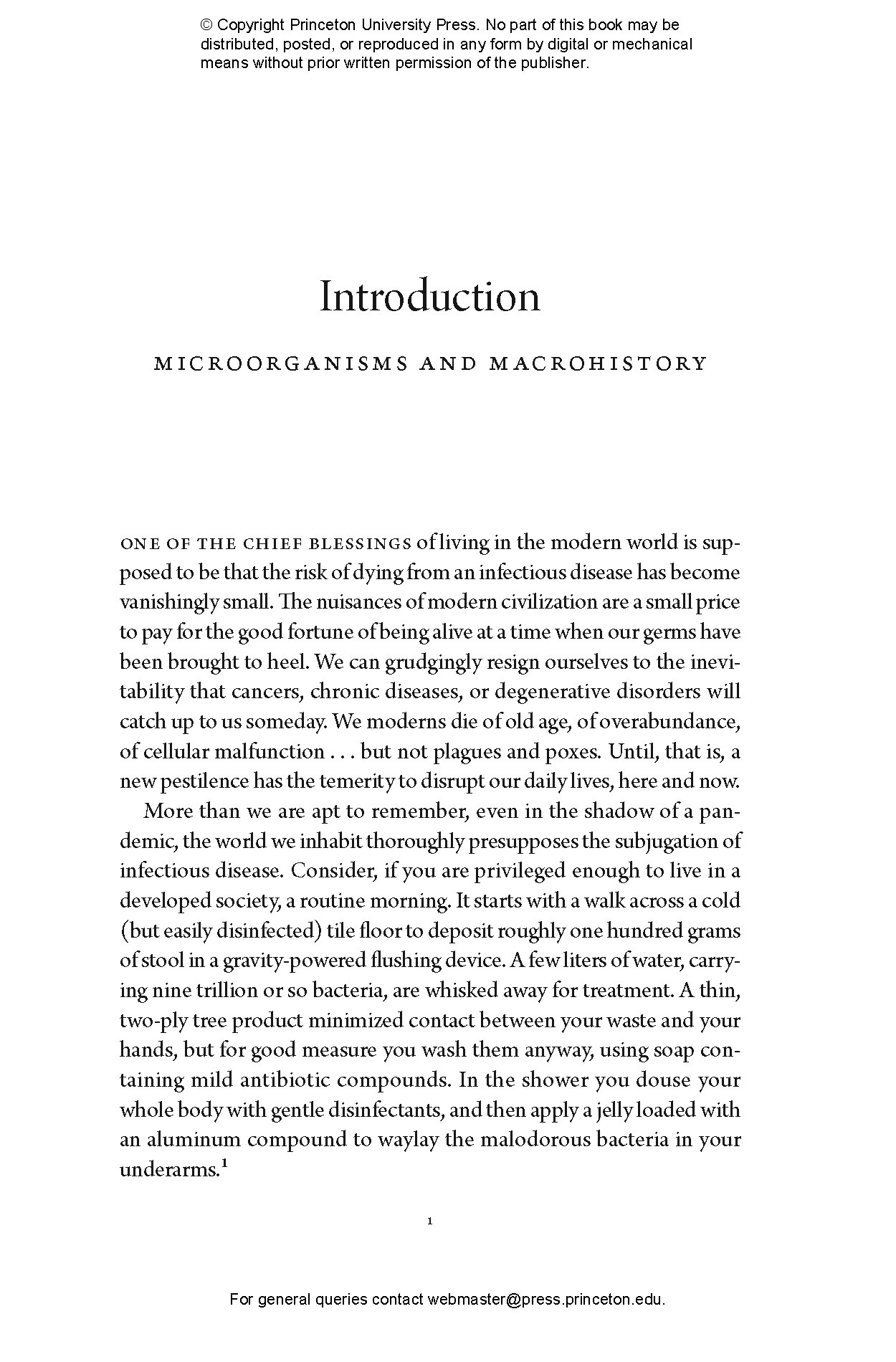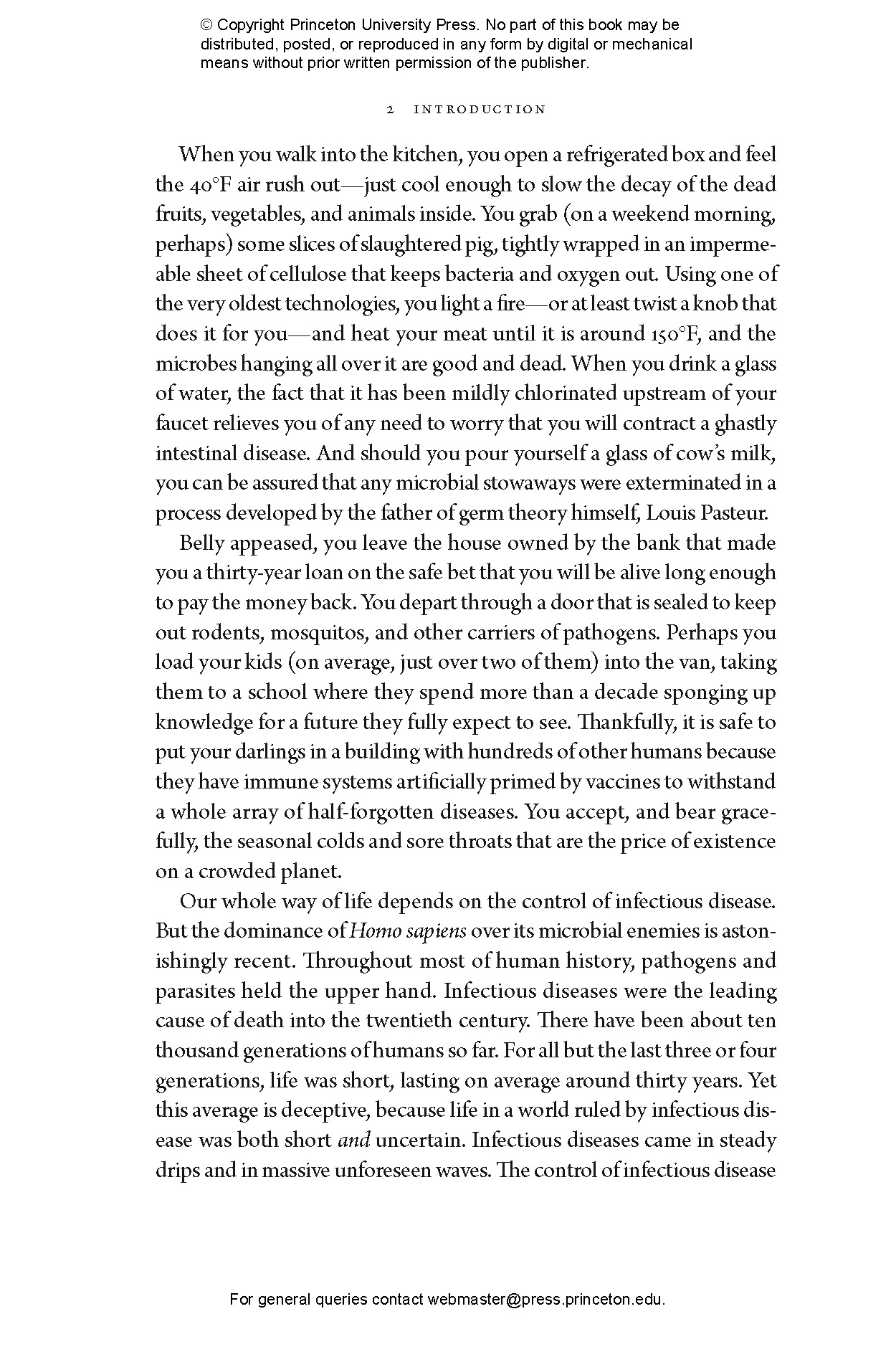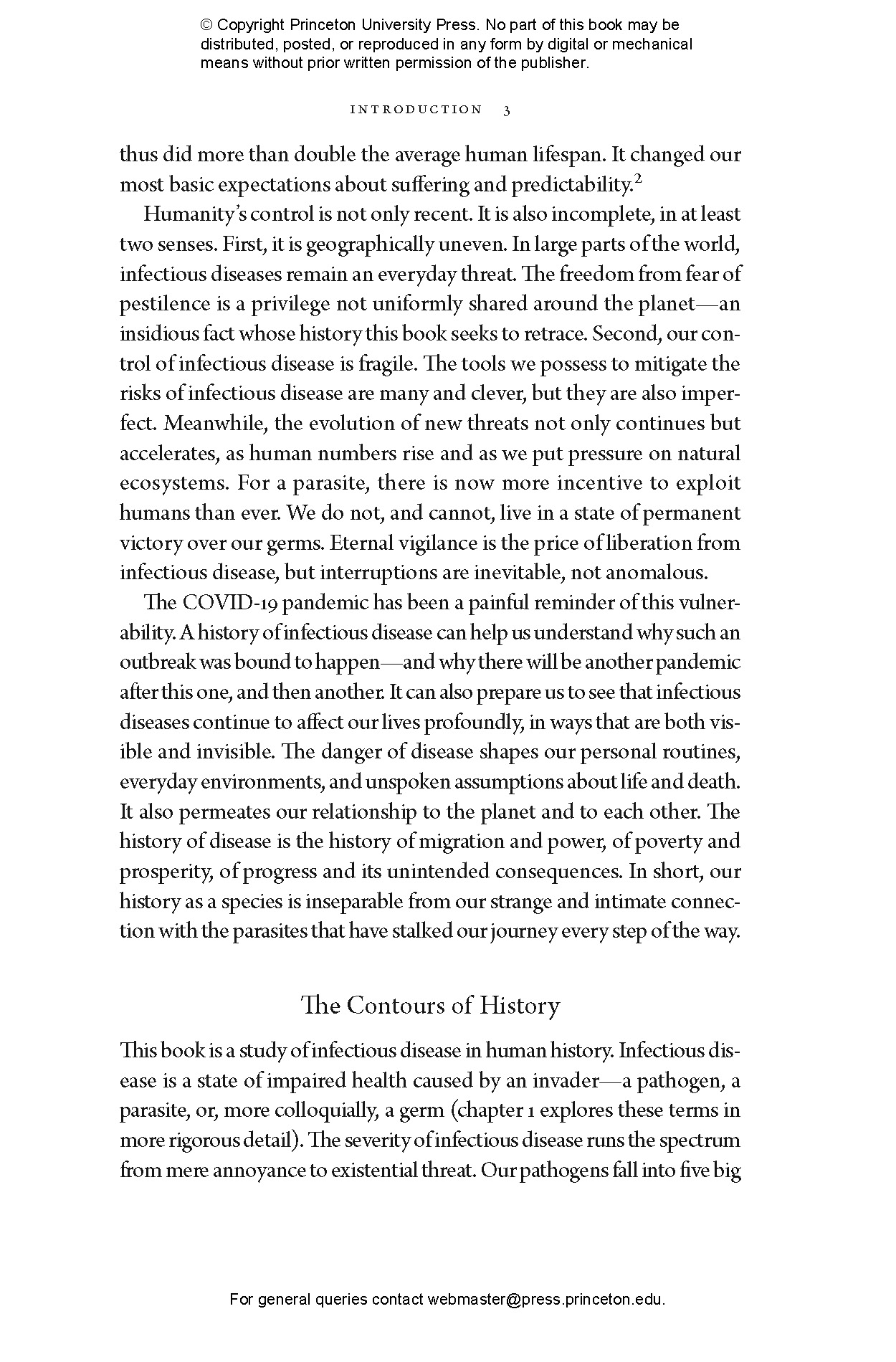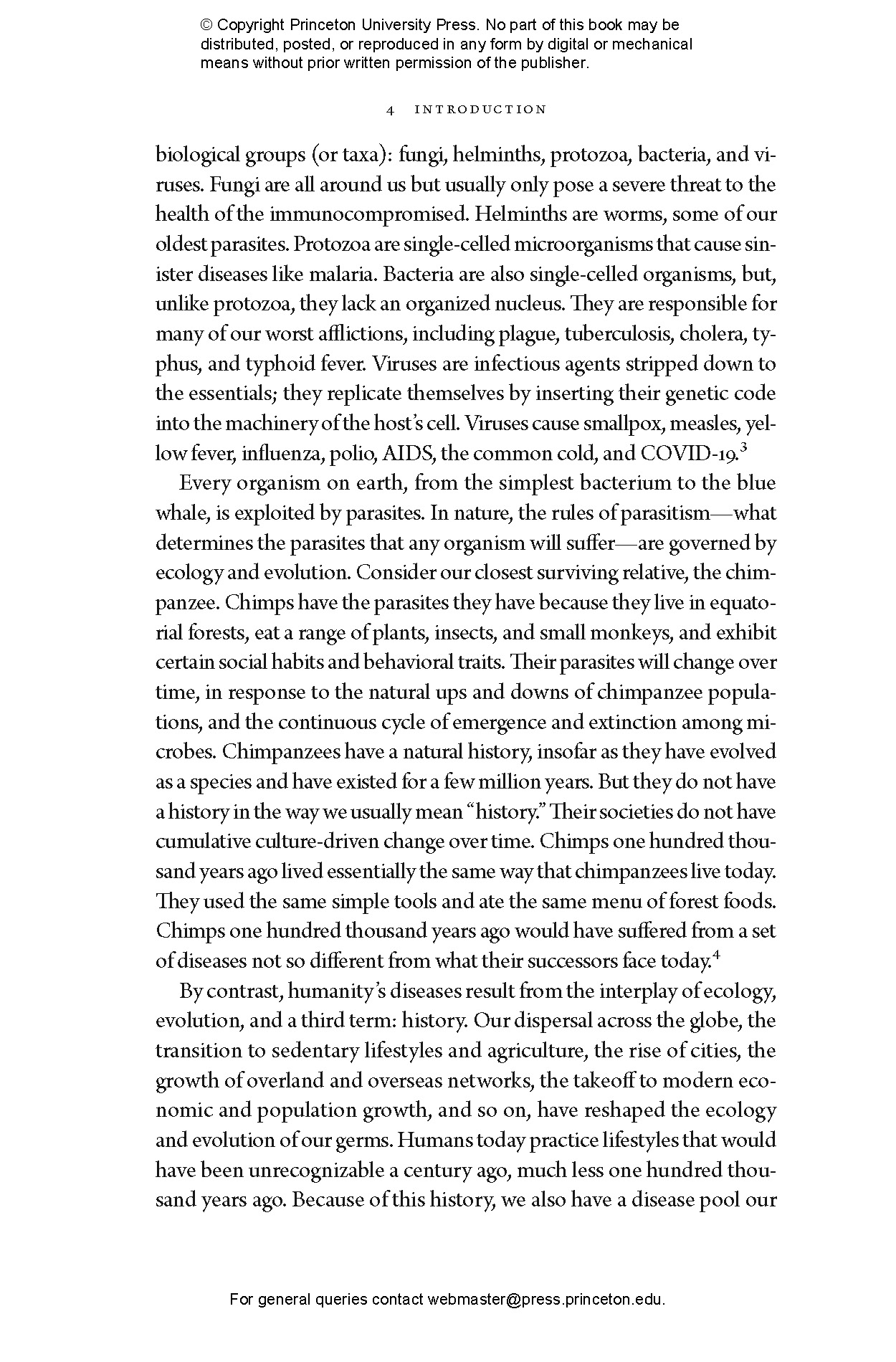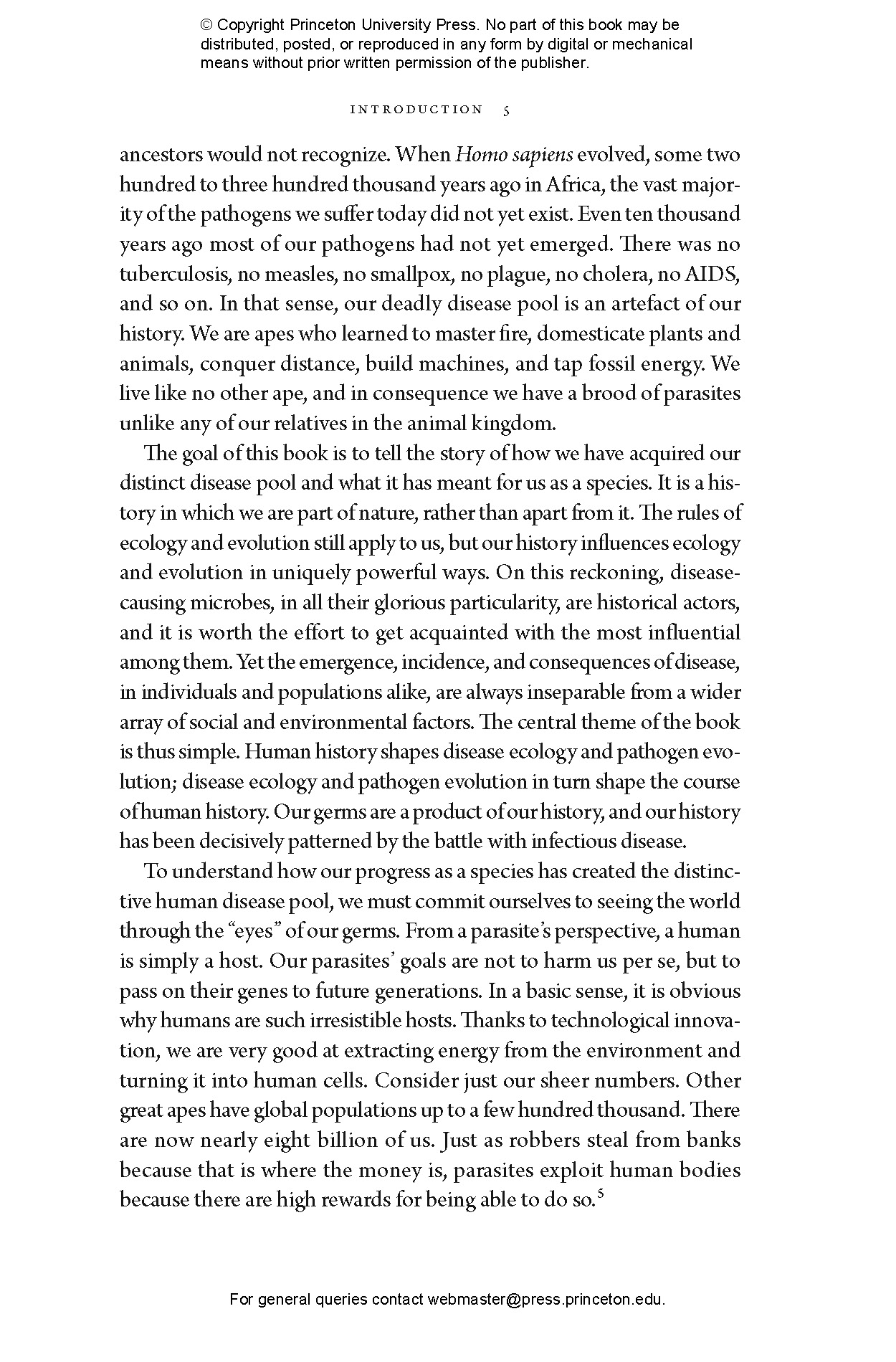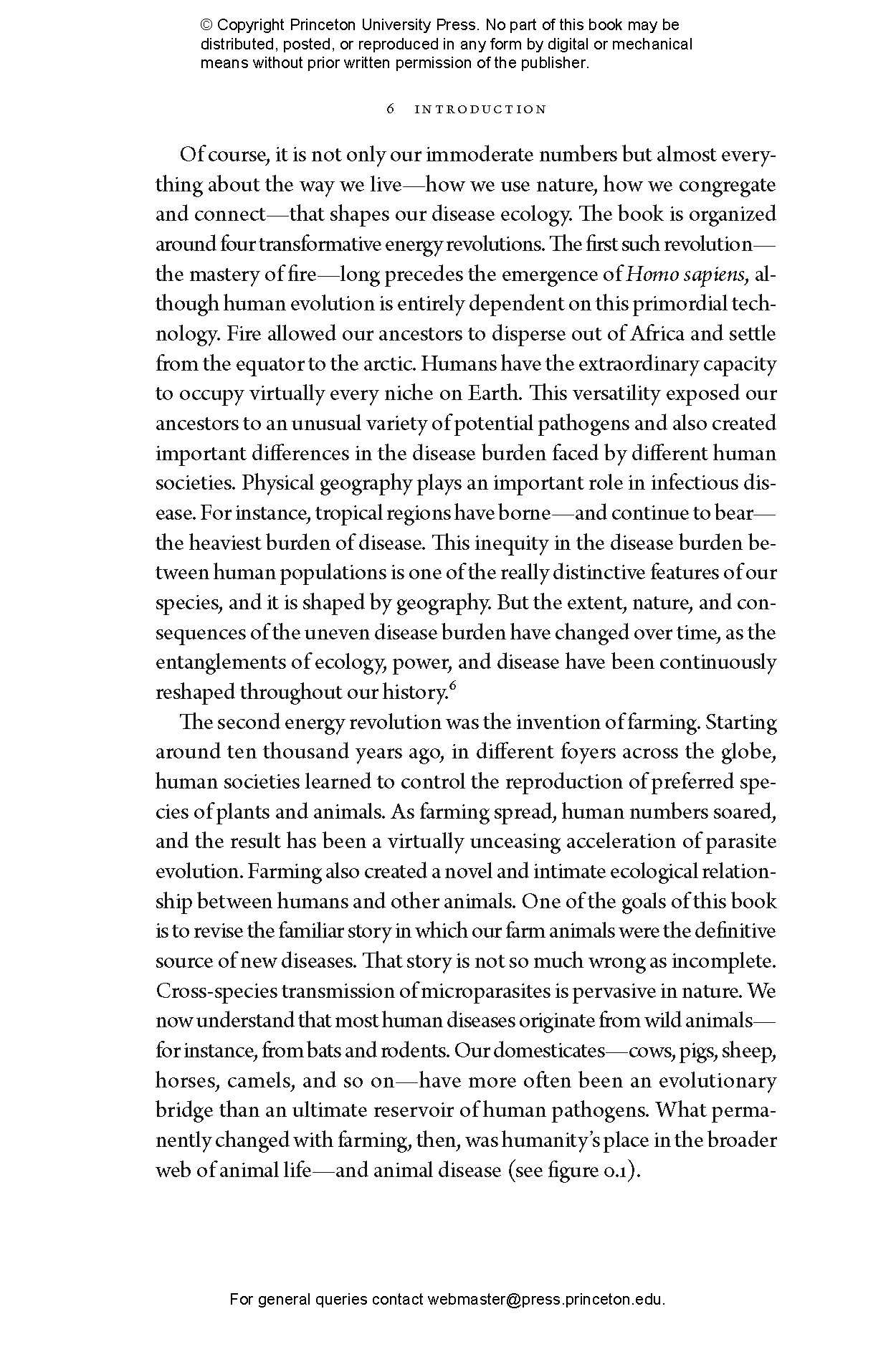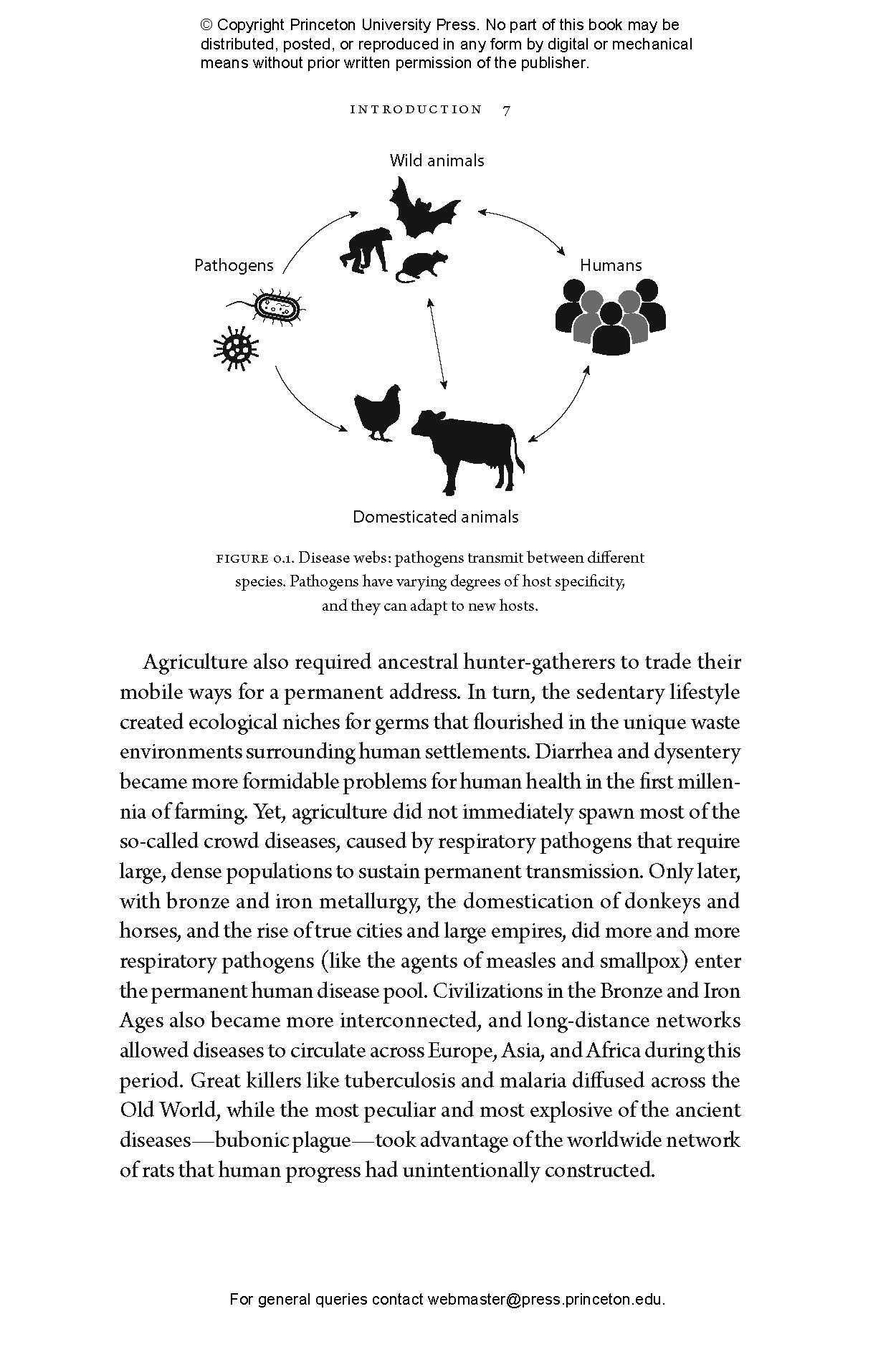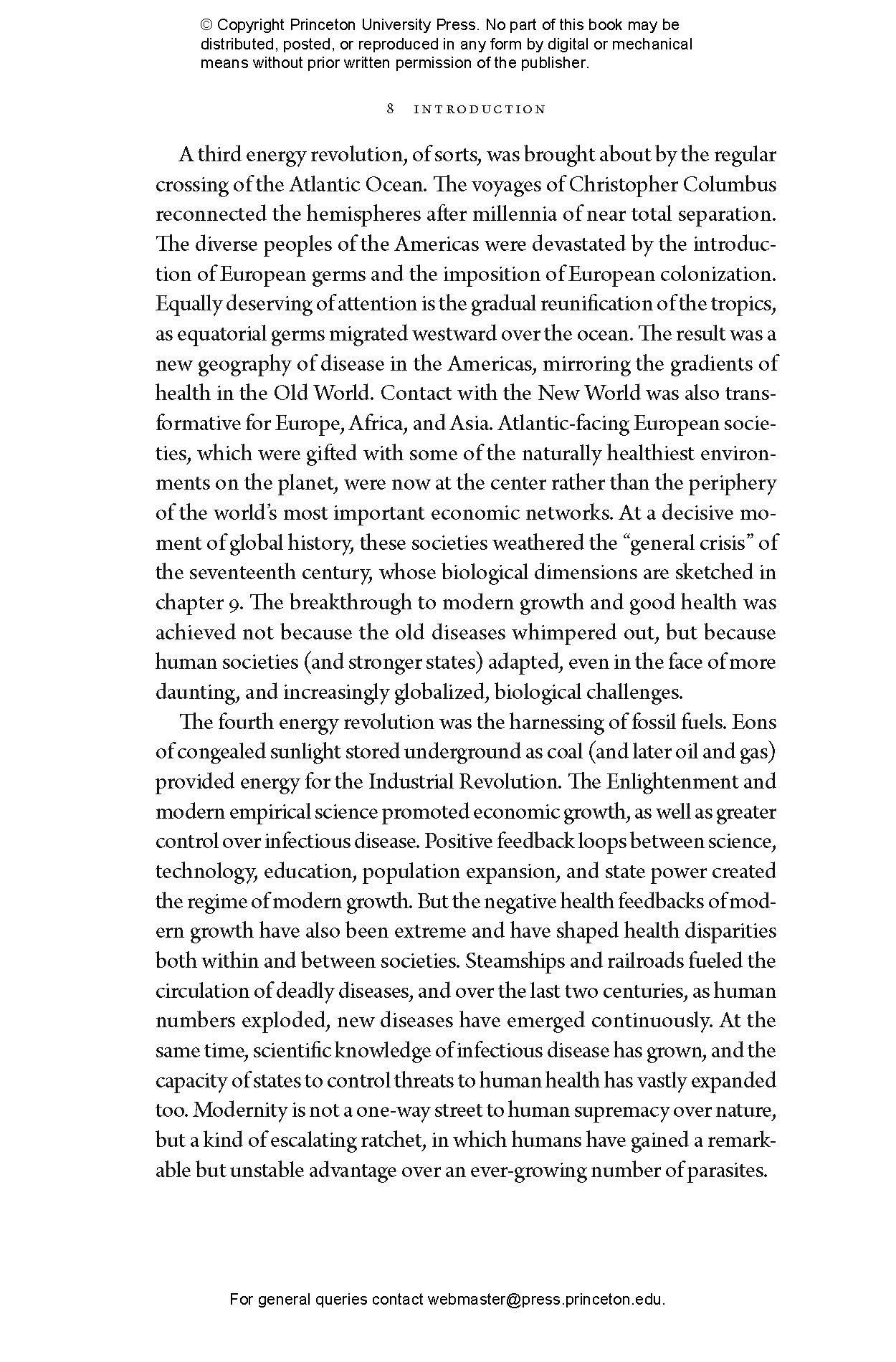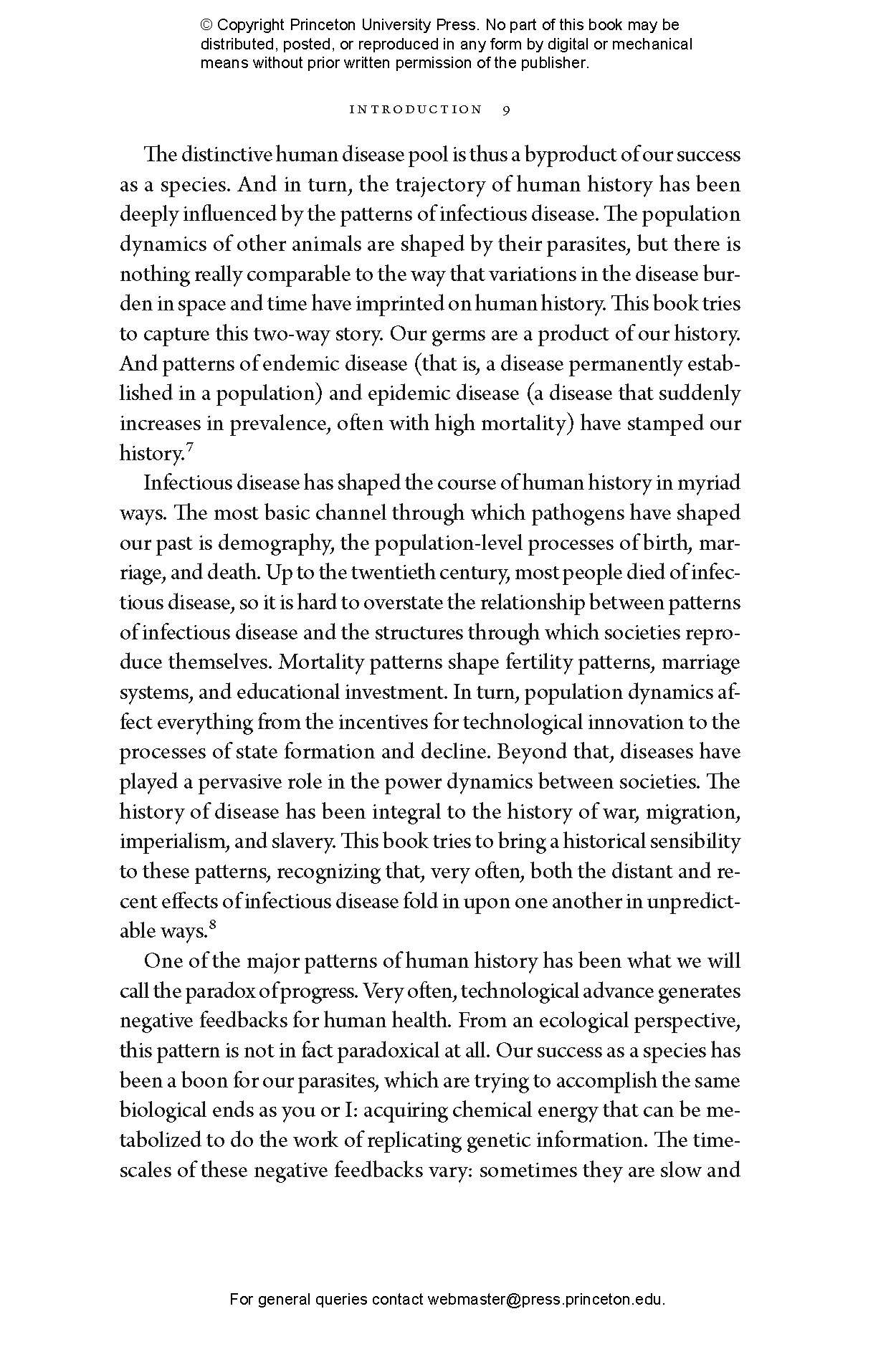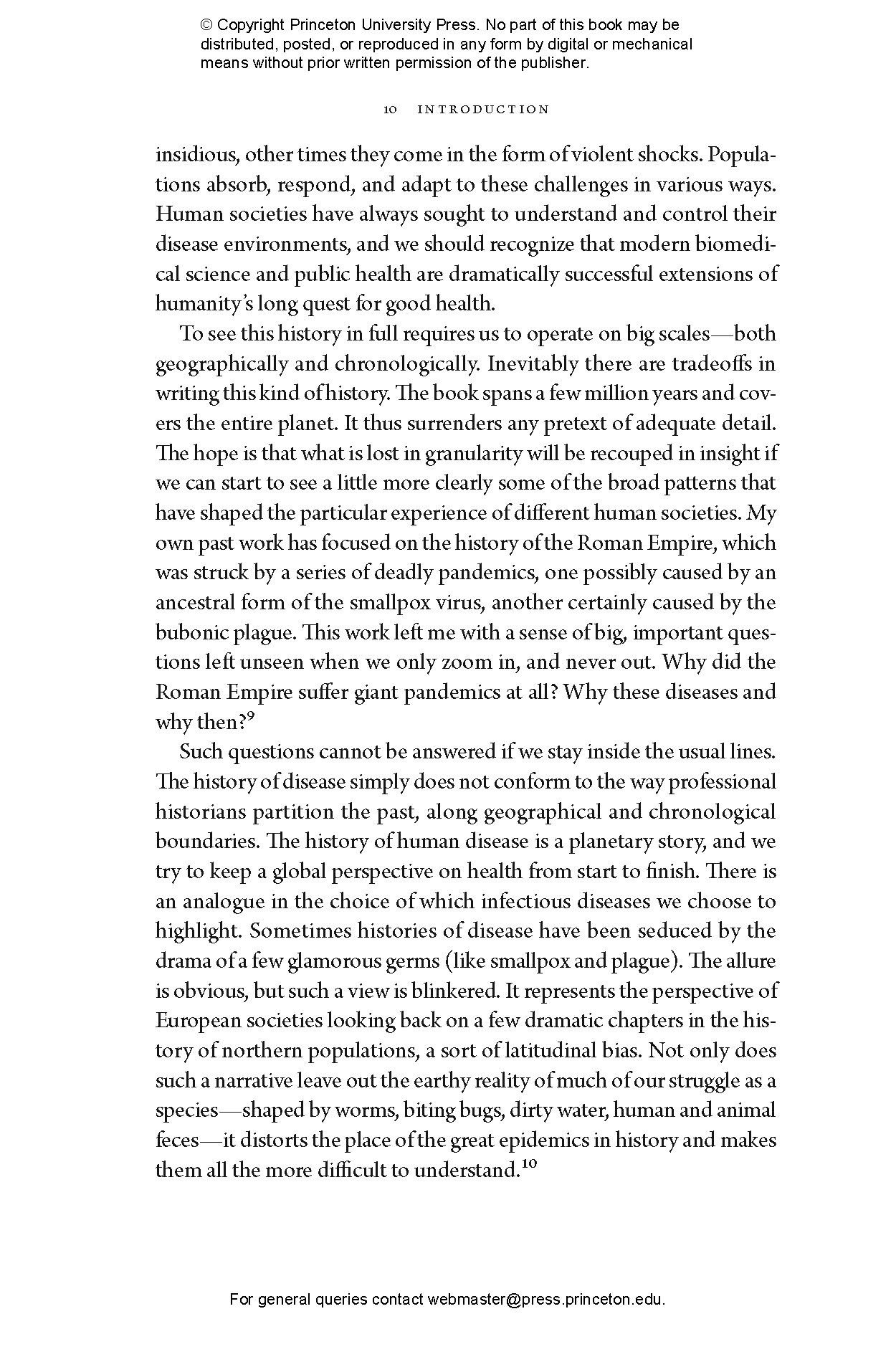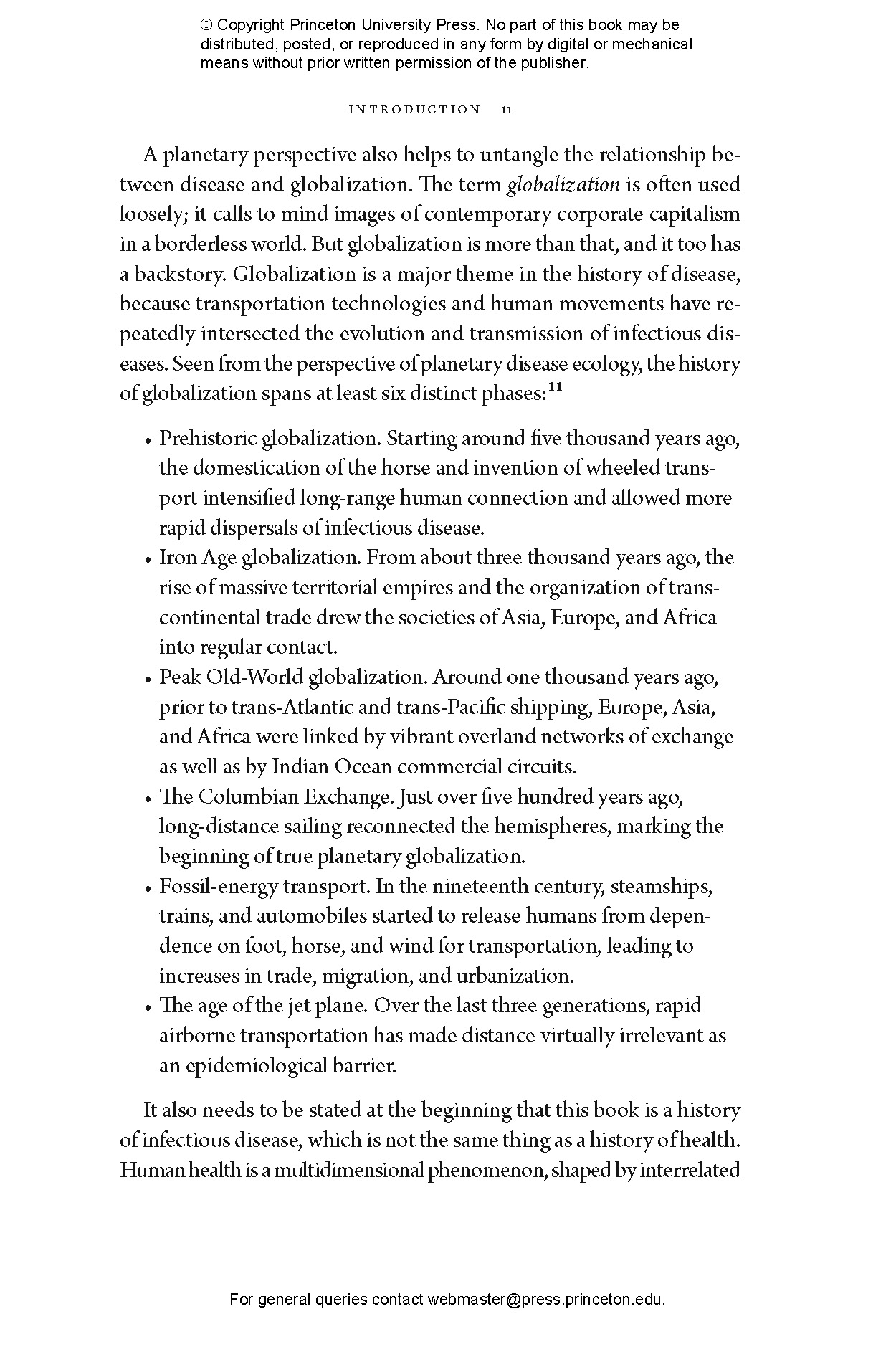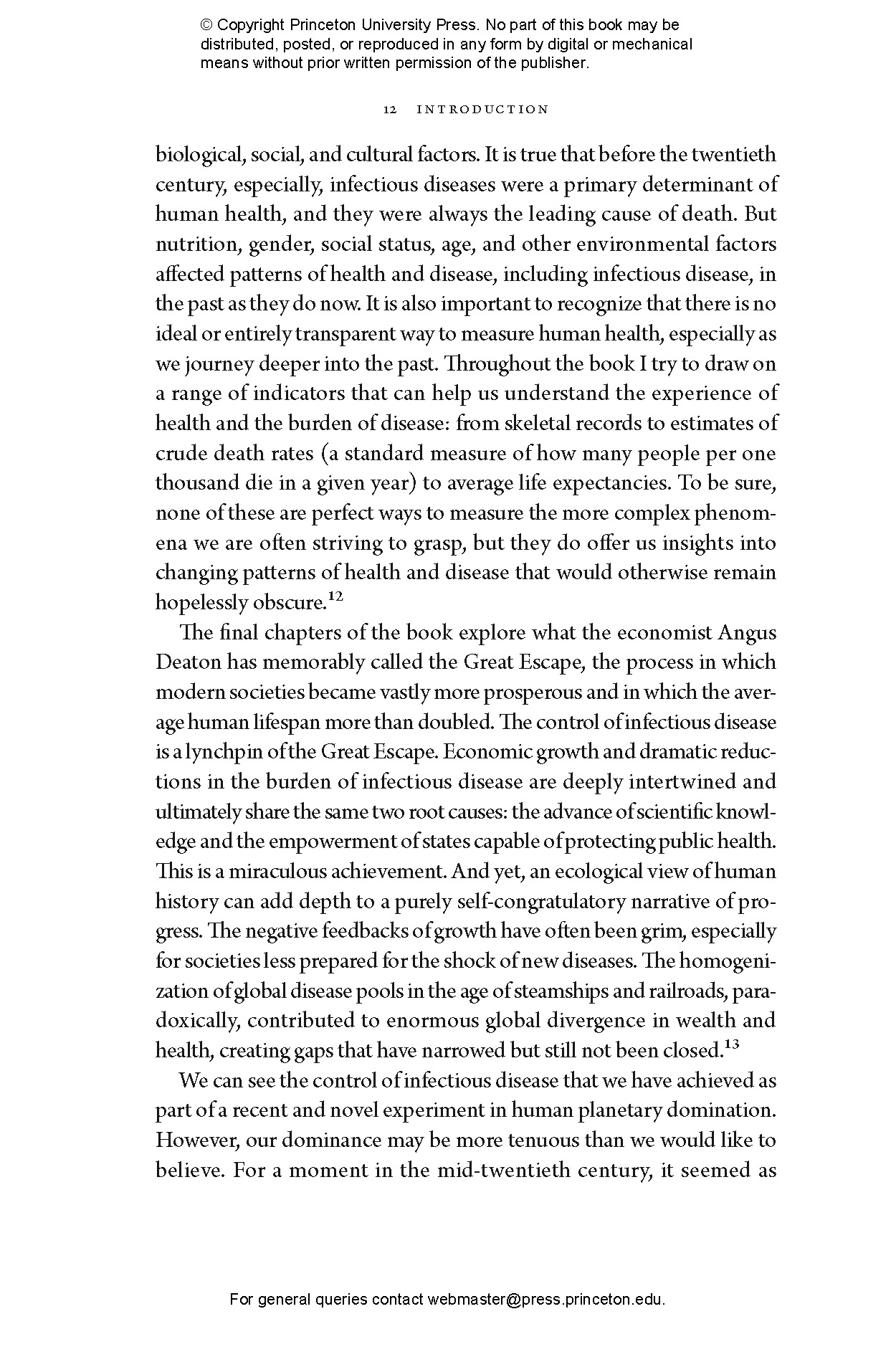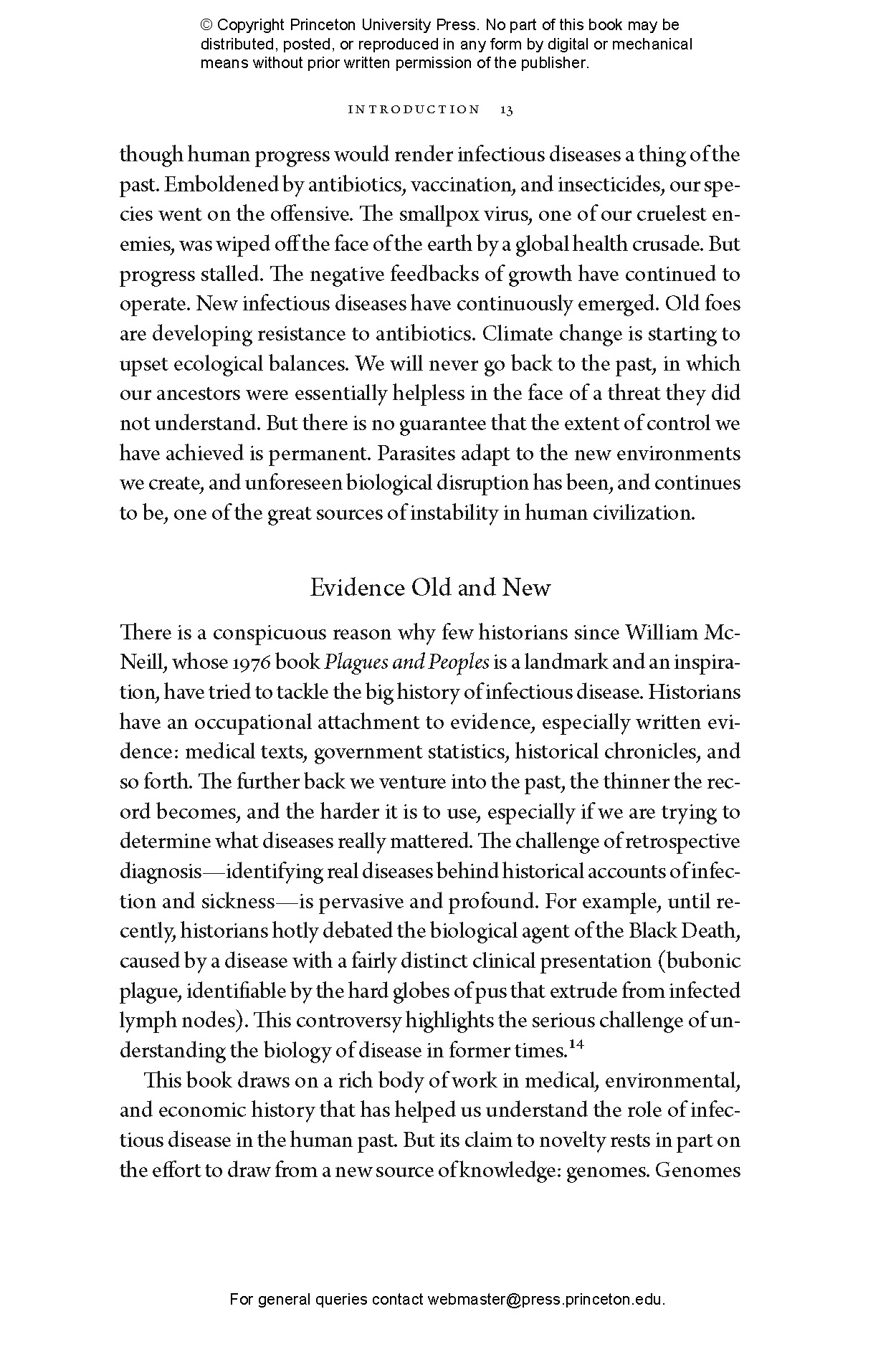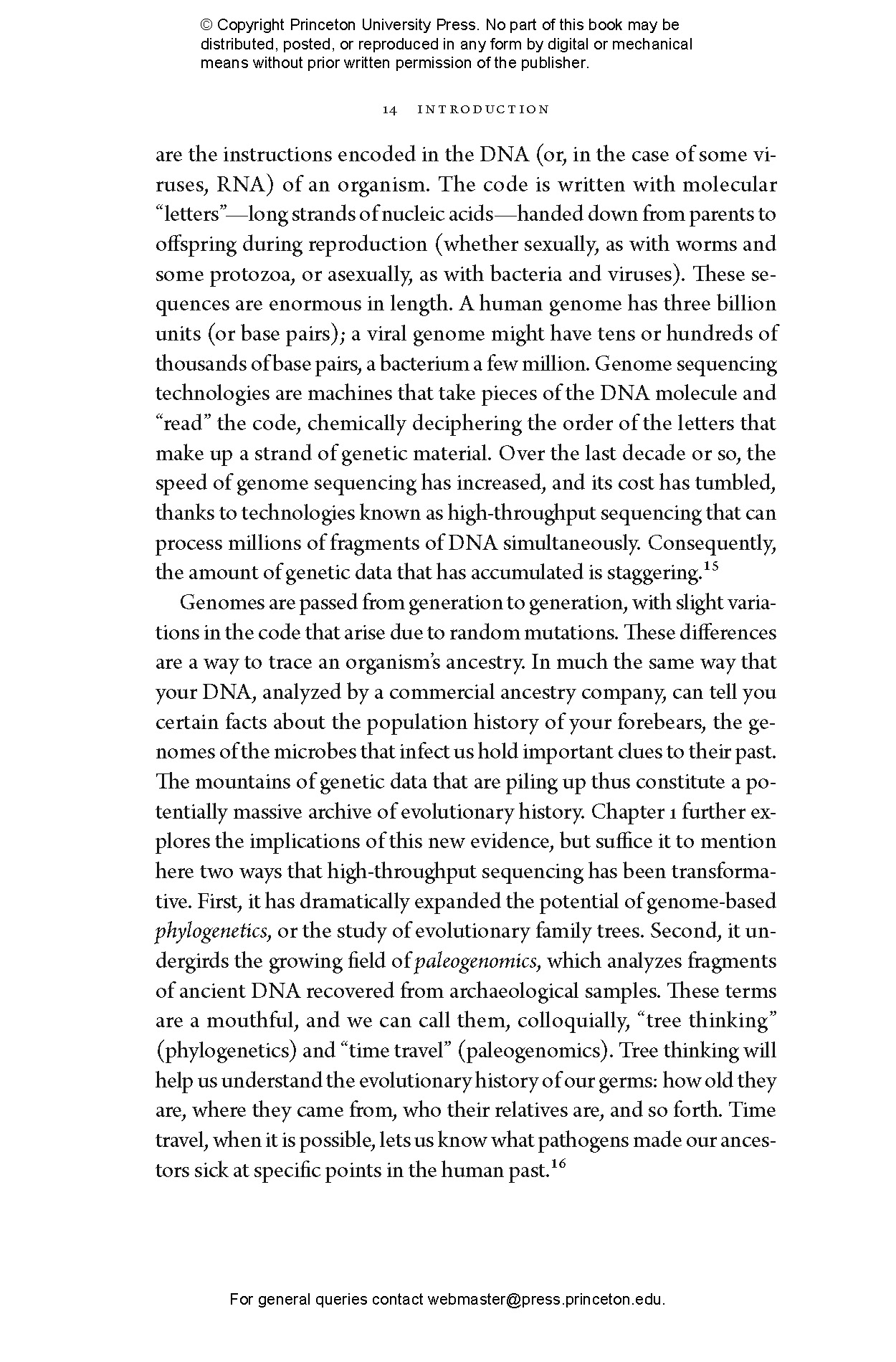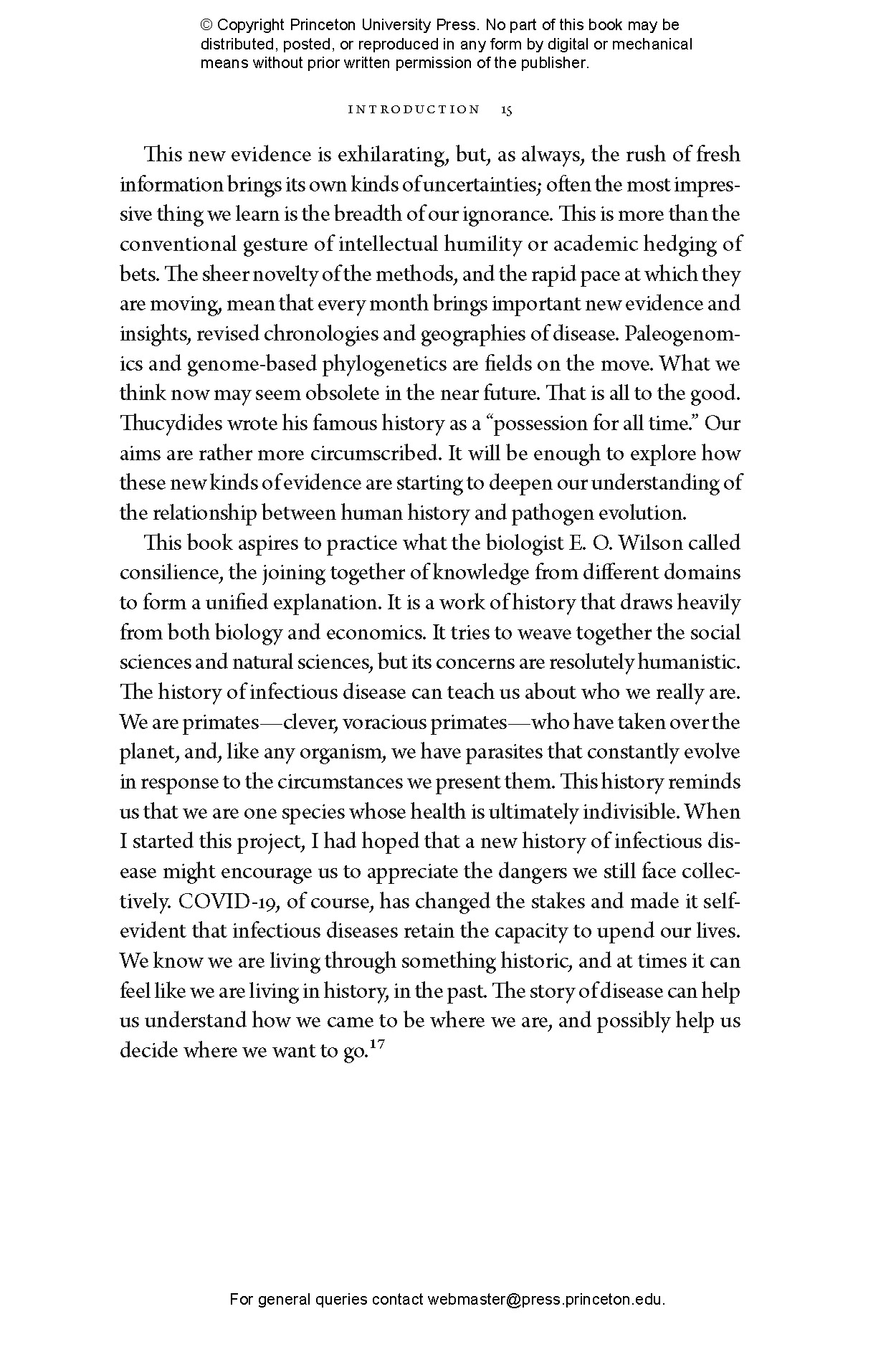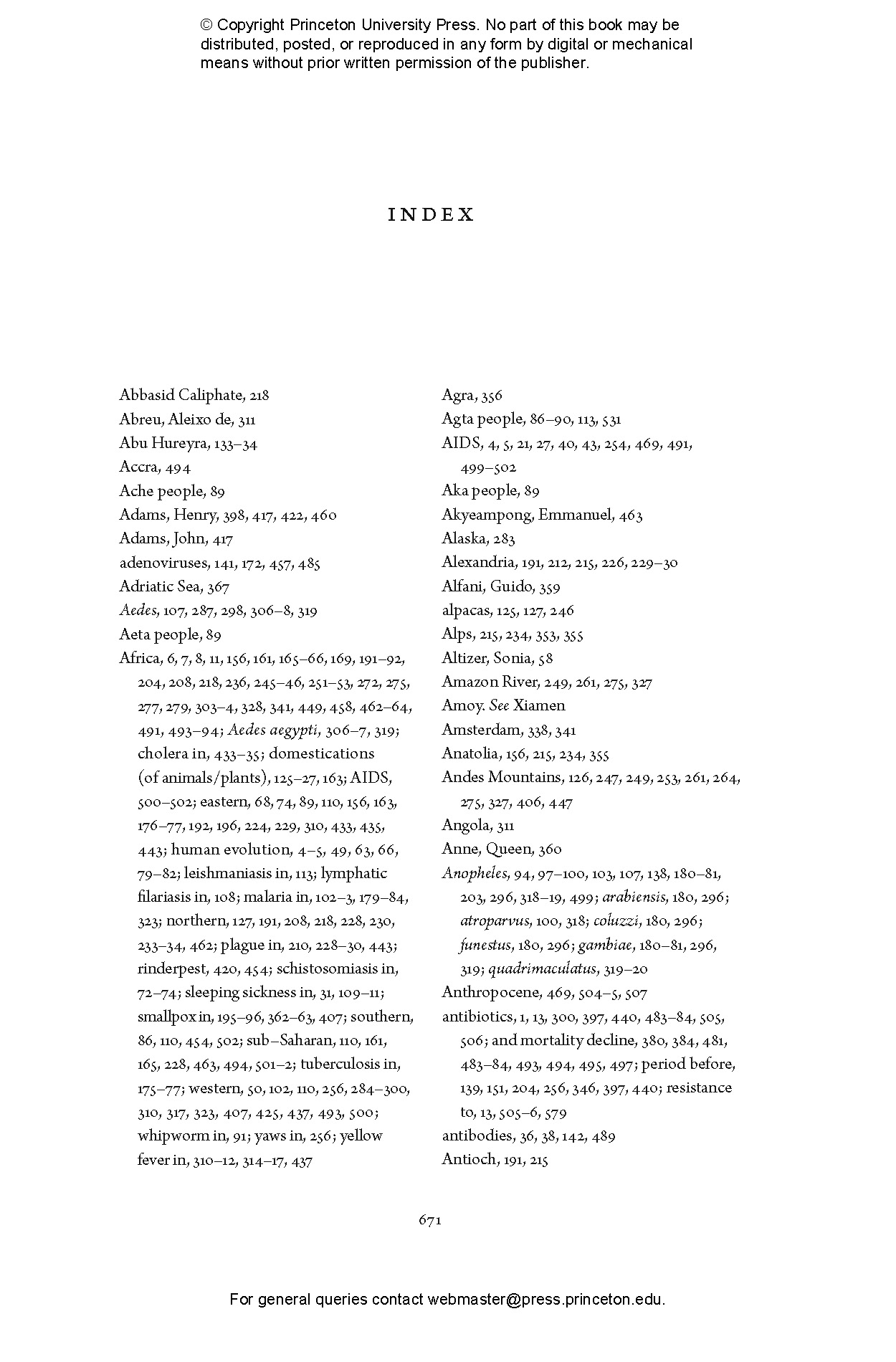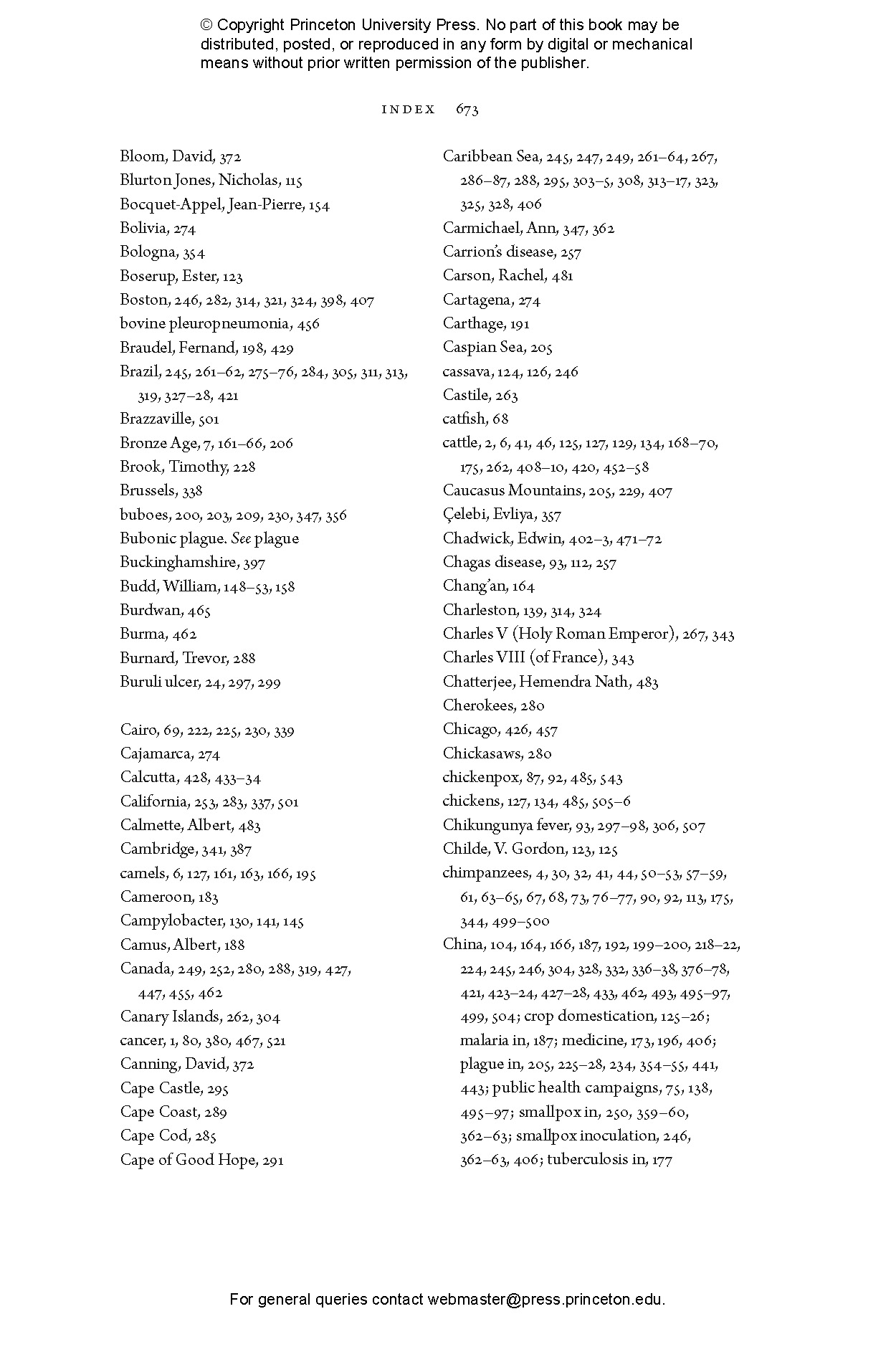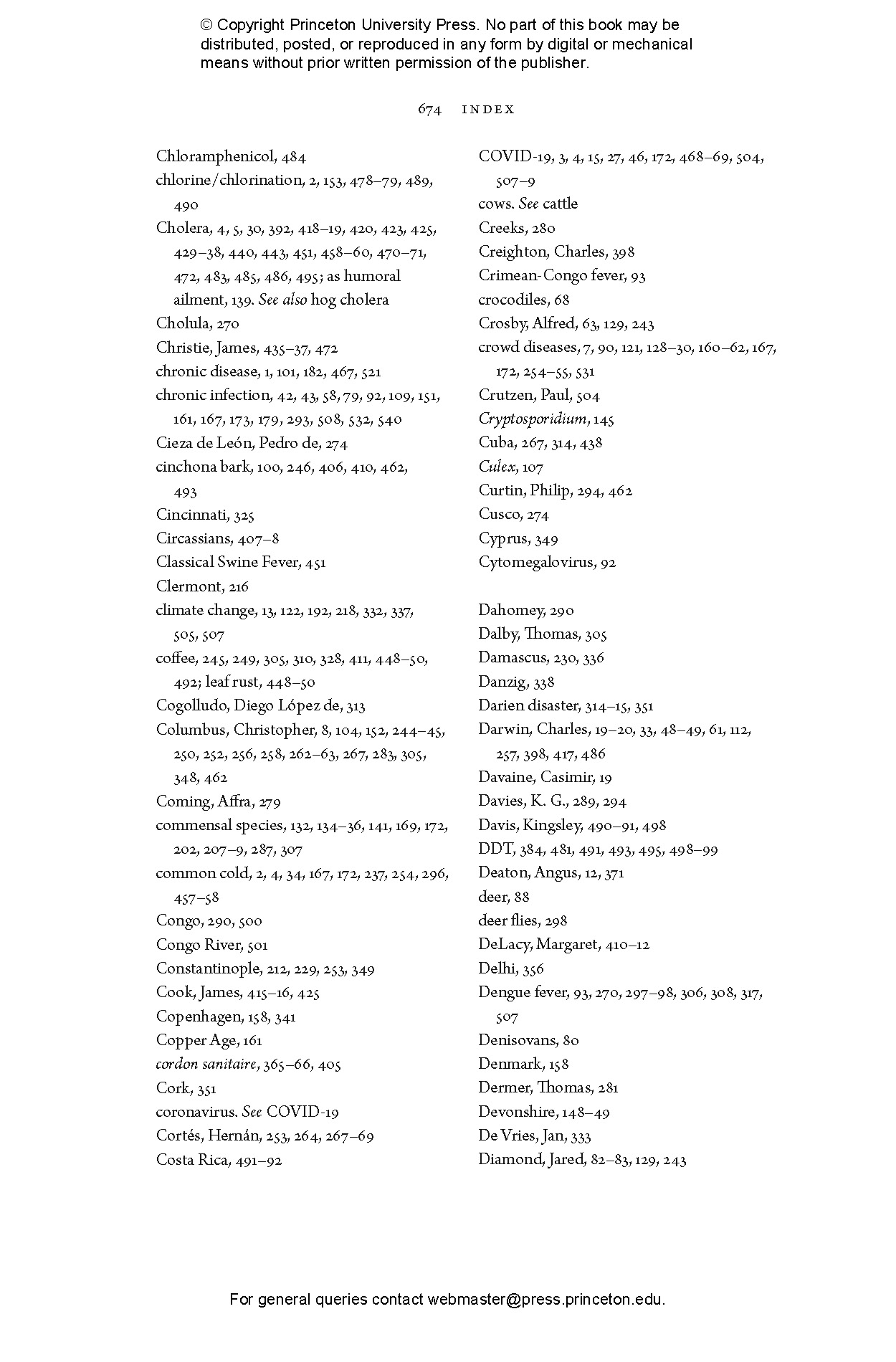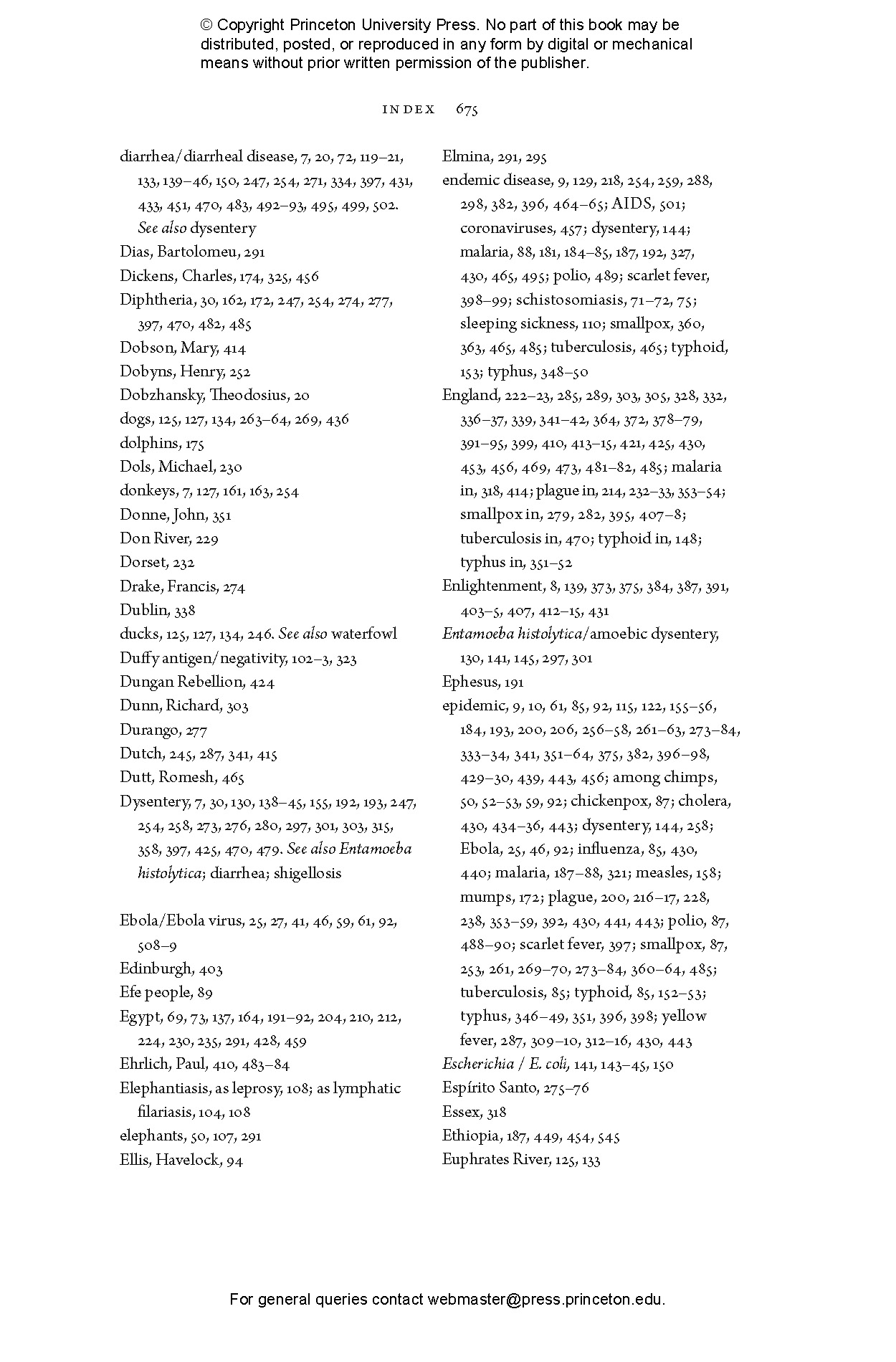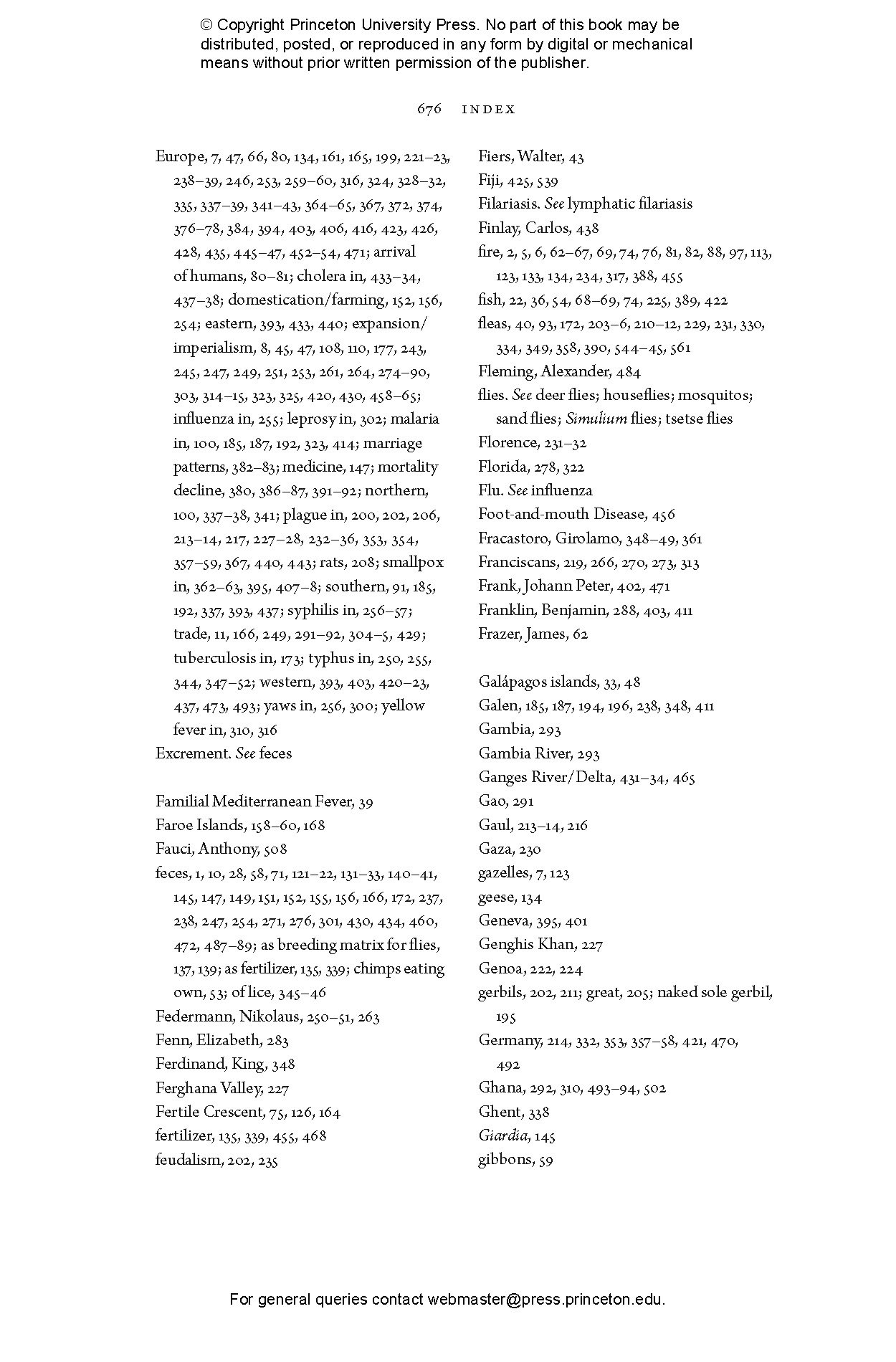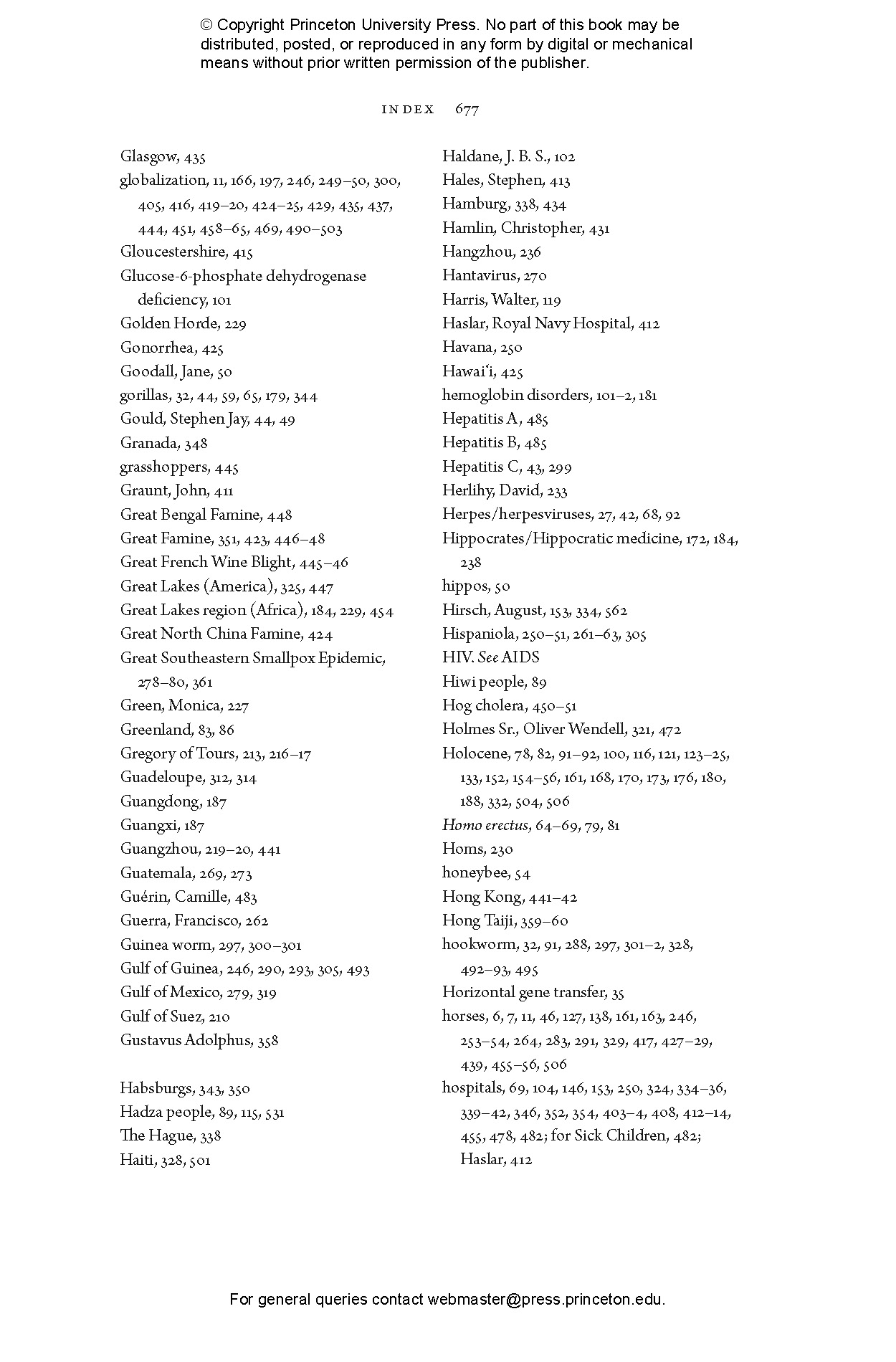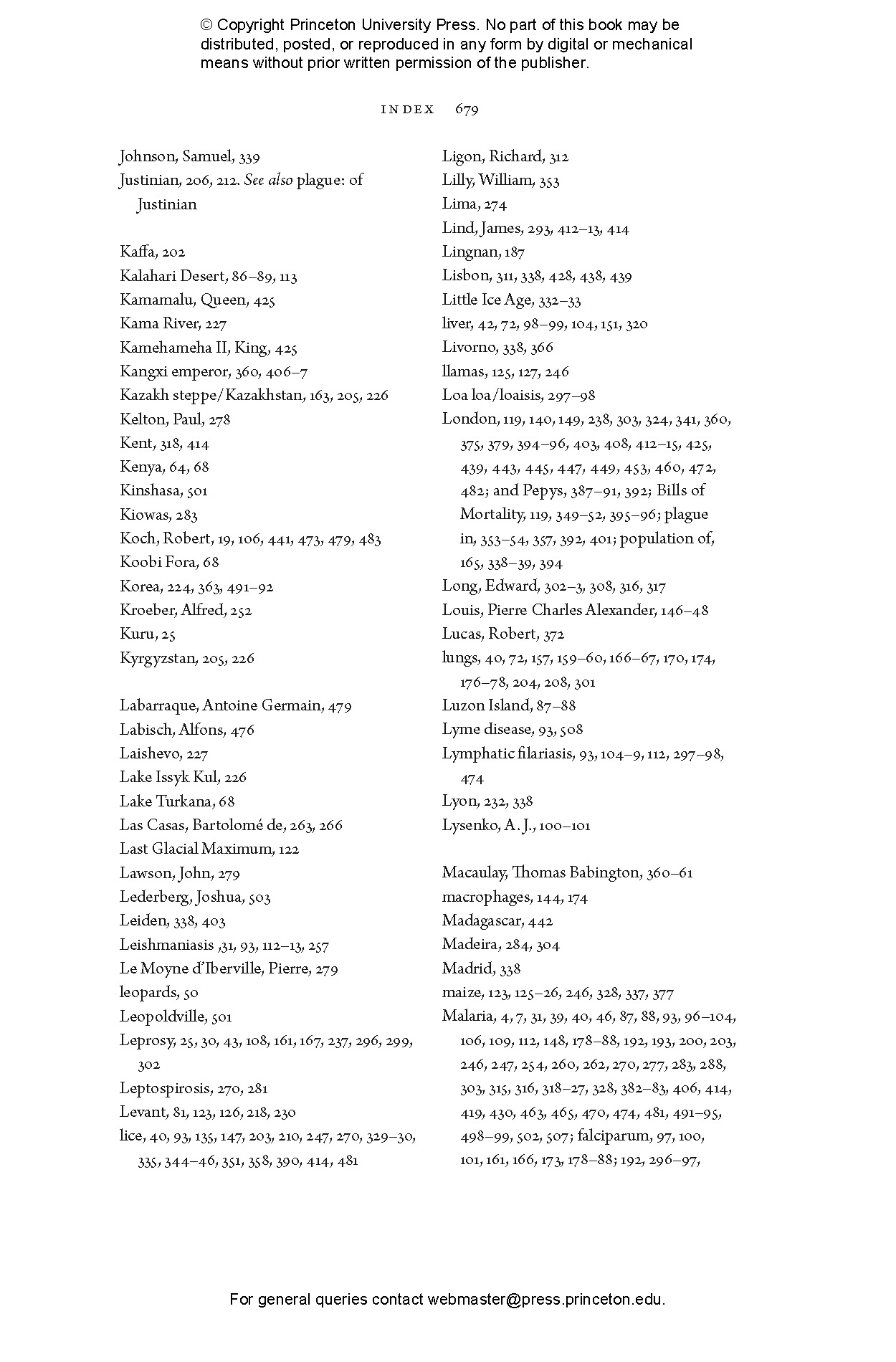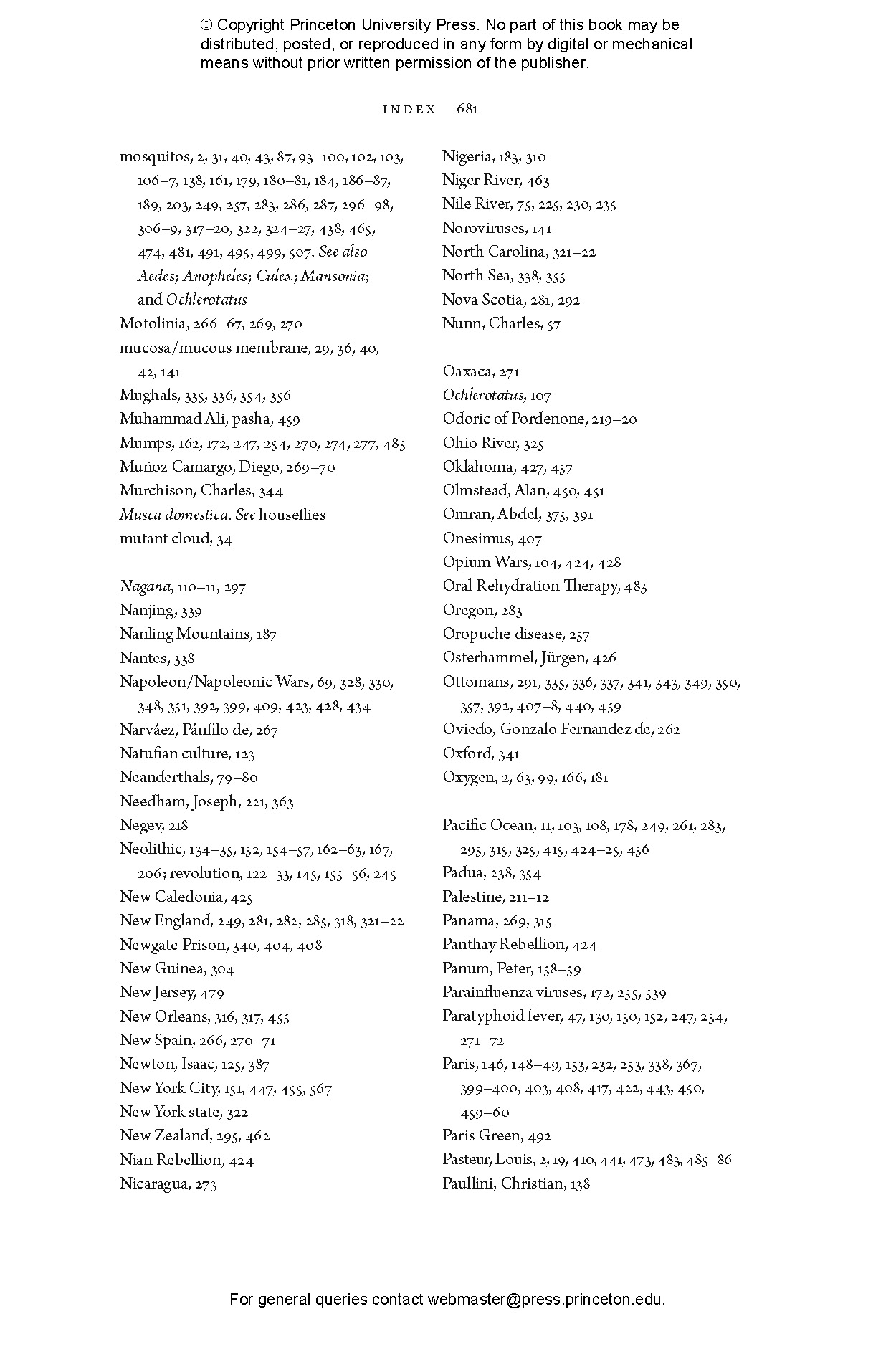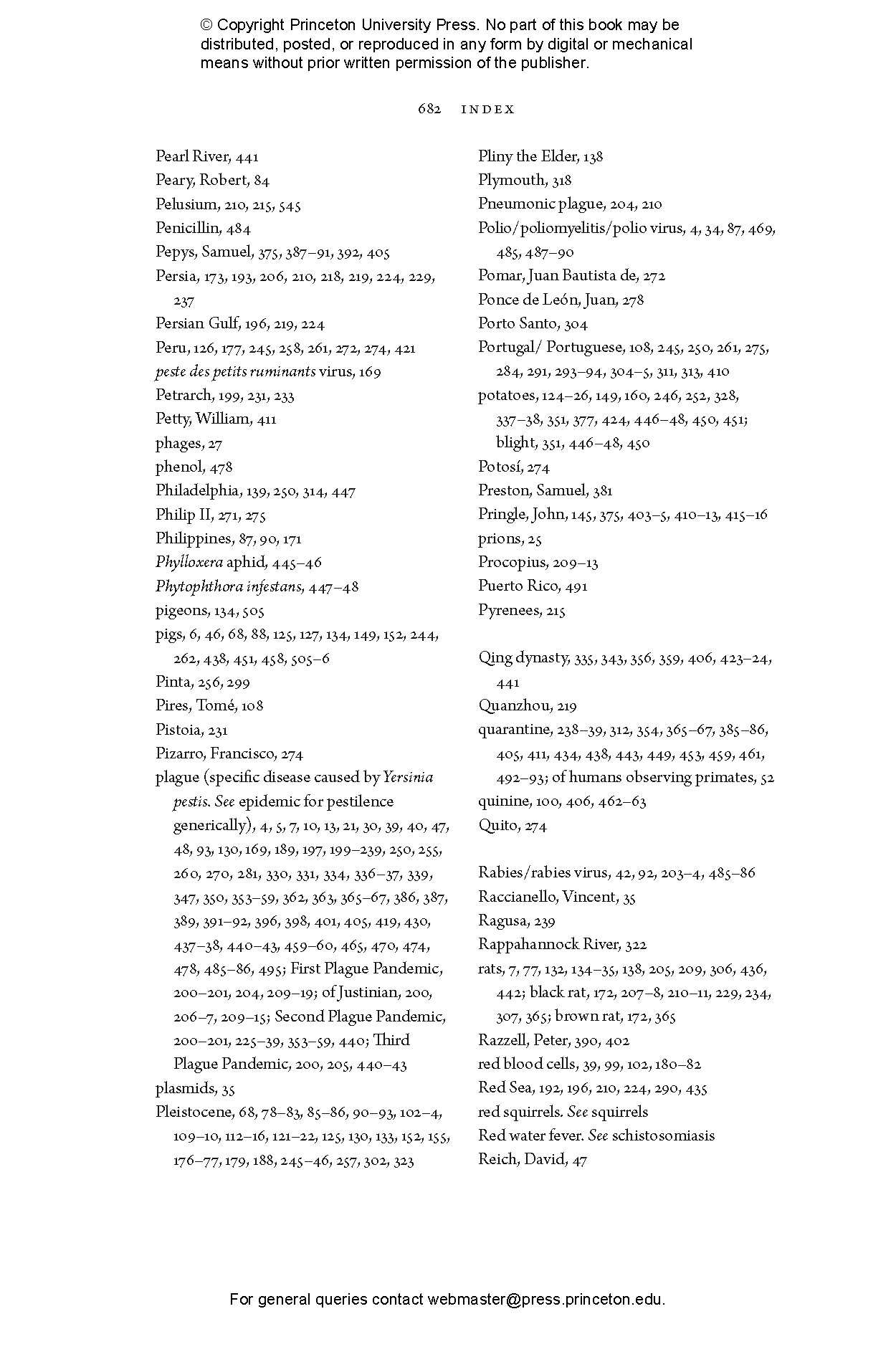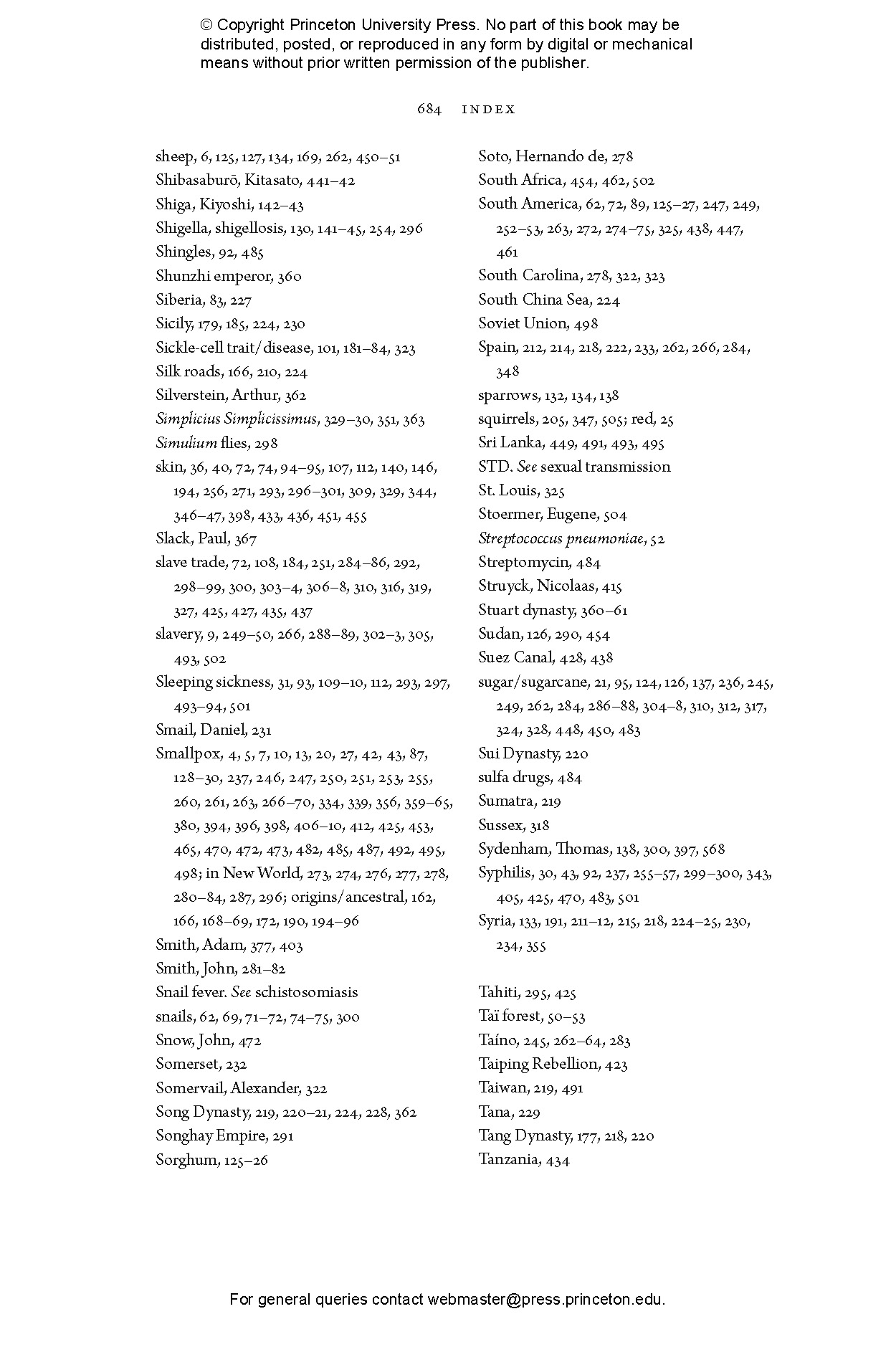Plagues Upon the Earth is a monumental history of humans and their germs. Weaving together a grand narrative of global history with insights from cutting-edge genetics, Kyle Harper explains why humanity’s uniquely dangerous disease pool is rooted deep in our evolutionary past, and why its growth is accelerated by technological progress. He shows that the story of disease is entangled with the history of slavery, colonialism, and capitalism, and reveals the enduring effects of historical plagues in patterns of wealth, health, power, and inequality. He also tells the story of humanity’s escape from infectious disease—a triumph that makes life as we know it possible, yet destabilizes the environment and fosters new diseases.
Panoramic in scope, Plagues Upon the Earth traces the role of disease in the transition to farming, the spread of cities, the advance of transportation, and the stupendous increase in human population. Harper offers a new interpretation of humanity’s path to control over infectious disease—one where rising evolutionary threats constantly push back against human progress, and where the devastating effects of modernization contribute to the great divergence between societies. The book reminds us that human health is globally interdependent—and inseparable from the well-being of the planet itself.
Putting the COVID-19 pandemic in perspective, Plagues Upon the Earth tells the story of how we got here as a species, and it may help us decide where we want to go.
Awards and Recognition
- A New Statesman Essential Non-Fiction Book of 2021
- Winner of the PROSE Award in the History of Science, Medicine, and Technology, Association of American Publishers
- A Choice Outstanding Academic Title of the Year
"[A] superb new history of infectious disease. Be so grateful you live now!"—David Frum
"Magisterial. . . . [Harper’s] mastery of the science is only matched by the ease of his prose. If I were to nominate a book of the year, it would be this one."—Andrew Sullivan, The Dishcast
"[A] sweeping masterpiece. . . . It’s difficult for me to think of anyone who will not find something eye-opening and enlightening in the pages of this comprehensive, beautifully written and eloquent book."—Forbes
"Plagues Upon the Earth is a remarkable achievement."—Talha Burki, The Lancet
"This magnificent book stood out as much for its nuance and academic rigour as it did for its readability."—Inquisitive Biologist
"An ambitious, engaging, and unified history of humanity’s interaction with infectious disease."—Gregory J. Morgan, Science
"By integrating history, demography, economics, evolutionary biology and genomics into a seamless narrative, [Harper] does something that I, for one, have never seen before done so eloquently or persuasively: he demonstrates that any thorough understanding of health requires the kind of sweeping perspective that the humanities offers."—Steve Mintz, Inside Higher Ed
"Comprehensive."—Tyler Cowen, Marginal Revolution
"A remarkable accomplishment that weaves together microbiology, history, and economics to understand the role of diseases in shaping human history. Harper, an established historian known for his first three books on Rome and late antiquity, has an impressive command of virology, bacteriology, and parasitology as well as history and economics. In Plagues Upon the Earth, he explains all of these clearly and with many arresting turns of phrase and insights."—Alex Tabarrok, Marginal Revolution
"Well-conceived. … [Kyle] Harper combs through the literature of history, economics, epidemiology, and other disciplines to deliver a solid study of the role of infectious disease in the human story. . . . Harper’s long-view study is a welcome addition to the spate of recent books on epidemic disease."—Kirkus Reviews
"This is a solid book, superbly referenced and interdisciplinary, covering disease from pre-human origins to the present, and making extensive use of published DNA comparisons and descriptions of plagues by historical observers."—Choice
"Completing the reading of this book leaves one with more than a feeling of satisfaction. Admiration for a major task that was written in an engaging style that retains a facile elegance throughout its 700 pages, that presents comprehensive and detailed information as though it were the sort of material that readers come across every day, is what one might not expect, but welcomes, in a serious work of this size."—Ian Lipke, Queensland Reviewers Collective
"This timely work is the book of extraordinary brilliance and scope and the most significant in the field since William McNeill’s Plagues and Peoples from the mid-1970s."—David Lorimer, Paradigm Explorer
"Magisterial."—Prospect
"Plagues Upon the Earth is a highly provoking and enjoyable read. It shows that our success as a species is equally paralleled to the success of pathogens"—Makayla Alderson Fox, World History Encyclopedia
“What a magnificent accomplishment! Plagues Upon the Earth illuminates the inexorable toll of infectious disease on humankind over thousands of years. The net effect is a clarion cry beseeching us to forswear denial and hubris for realism and collaboration when it comes to our vulnerability to disease. Readable, global, and provocative, this book speaks to the human condition itself.”—Elizabeth A. Fenn, Pulitzer Prize winner and author of Pox Americana: The Great Smallpox Epidemic of 1775–82
“The ordeal of COVID-19 reminds us of the power of infectious disease in human affairs. Harper’s lively overview illuminates the global historical role of infectious disease as no previous book has done, taking advantage of the fresh harvest of information about disease history now available through genomic sequencing. A triumph of synoptic history on a crucial and all too timely subject.”—J. R. McNeill, coauthor of The Great Acceleration
“Kyle Harper has written the perfect update to William McNeill’s twentieth-century groundbreaking book, Plagues and Peoples, drawing on twenty-first-century science to show how viruses, bacteria, and other microbes have changed the course of history and threaten our survival. This monumental work spans the history of humanity and our species’ constantly evolving landscape of microscopic threat. It’s a jaw-dropping contribution to the canon of literature on pandemics, outbreaks, and microbial impact on human history.”—Laurie Garrett, Pulitzer Prize–winning writer and author of The Coming Plague: Newly Emerging Diseases in a World Out of Balance
“Timely, comprehensive, and fluently written. Plagues Upon the Earth represents a superb unification of the latest evidence about infectious diseases from prehistory until the present: diseases that changed the course of world history more than treaties, wars, and nations. If viruses and bacteria could have selected their own most worthy biographer, they couldn’t have done better than to have chosen Kyle Harper to narrate their long history.”—James C. Scott, author of Against the Grain
“Comprehensive and accessible. Everyone should read Plagues Upon the Earth in order to understand the role of disease in our history, and in our future.”—Susan P. Mattern, author of The Slow Moon Climbs
“Reading Harper’s masterful book is like witnessing firsthand the terror of Pompeii, except that it is not the eruption of Vesuvius that fills us with fear and awe but rather deadly epidemics as they unfold across the centuries. Plagues Upon the Earth illuminates the history of humanity and its diseases while providing important insights into the COVID-19 pandemic.”—Peter J. Hotez, author of Preventing the Next Pandemic



